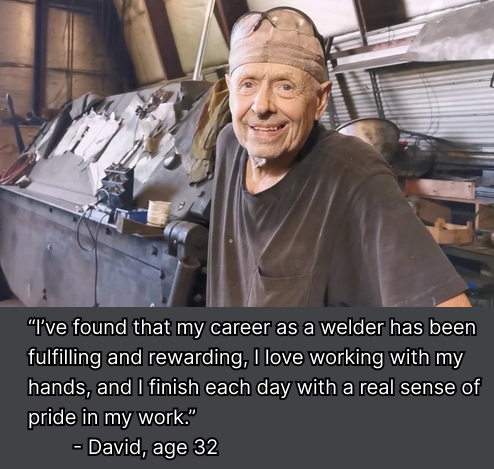this post was submitted on 25 Mar 2024
391 points (98.0% liked)
memes
10206 readers
2023 users here now
Community rules
1. Be civil
No trolling, bigotry or other insulting / annoying behaviour
2. No politics
This is non-politics community. For political memes please go to [email protected]
3. No recent reposts
Check for reposts when posting a meme, you can only repost after 1 month
4. No bots
No bots without the express approval of the mods or the admins
5. No Spam/Ads
No advertisements or spam. This is an instance rule and the only way to live.
Sister communities
- [email protected] : Star Trek memes, chat and shitposts
- [email protected] : Lemmy Shitposts, anything and everything goes.
- [email protected] : Linux themed memes
- [email protected] : for those who love comic stories.
founded 1 year ago
MODERATORS
you are viewing a single comment's thread
view the rest of the comments
view the rest of the comments

I figure it'll basically be two kinds of work that can do that shit, for a long time:
Minimally tethered, highly mobile robots that can climb all over the place and do industrial welding, in high places, underwater, on the side of rockets, in construction work, etc. These will be ruinously expensive, for a long time. But they will be worth it, because you can literally have the next shift come in and put the control-suit on, without even having the robot waste time climbing down. And you never have to worry about human safety protocols.
Robots that are more bound to a single "station" area. Kind of like the robotic welding machines that do autonomous tasks in the automobile industry, but set up for full human control, from the next room. These would probably be much cheaper, since they wouldn't have to move on their own. You'd have to set the work in front of them and pick it up when the task was done. But, again, they'd be cheaper than the mobile ones.
Either way, this would be something that would be confined to relatively specific use cases, for quite a while.